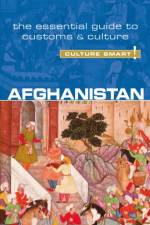av Moska Najib & Nazes Afroz
151
Afghanistan is situated at the crossroads of Asia, a strategically important location that connects the Middle East with Central Asia and the Indian subcontinent. Down the ages it has been subjected to continuous foreign invasion and intervention-from Alexander the Great to Genghis Khan, and as a pawn in the struggle between the British and Russian Empires-making its people wary of outsiders. That history is being repeated in the twenty-first century. Afghanistan has always been seen from the outside as a realm of much intrigue and many myths. The Afghans tried to keep their distance from the outside world-especially from the Europeans who, whether in pursuit of imperial goals or simply as explorer–travelers, attempted to enter and traverse the land. Their very elusiveness attracted Westerners to this landlocked country of high mountains and breathtaking beauty, where age-old customs and traditions were zealously guarded, sometimes at the cost of many lives. The Afghan people are a tapestry of ethnicities woven over time-Pashtuns, Tajiks, Hazaras, Uzbeks, and many smaller ones. Society is organized mainly along ethnic and tribal lines, but ethnic identity becomes irrelevant when a common enemy threatens to take control of the country. There are also many shared values and unwritten codes of conduct that govern interpersonal relations, which are not taken lightly. Visitors are struck by the simplicity, hospitability, dignity, and generosity of the Afghan people, and often confounded by customs that they find hard to understand. Culture Smart! Afghanistan is a unique introduction to the background, habits, traditions, idiosyncrasies, suspicions about foreigners, and patterns of behavior of the Afghan people. It offers visitors invaluable information and insights that will help them to interact with Afghans, to interpret their behavior, and to behave appropriately in their company, whether in personal or business exchanges. Once the ice is broken, the rewards will be great.

